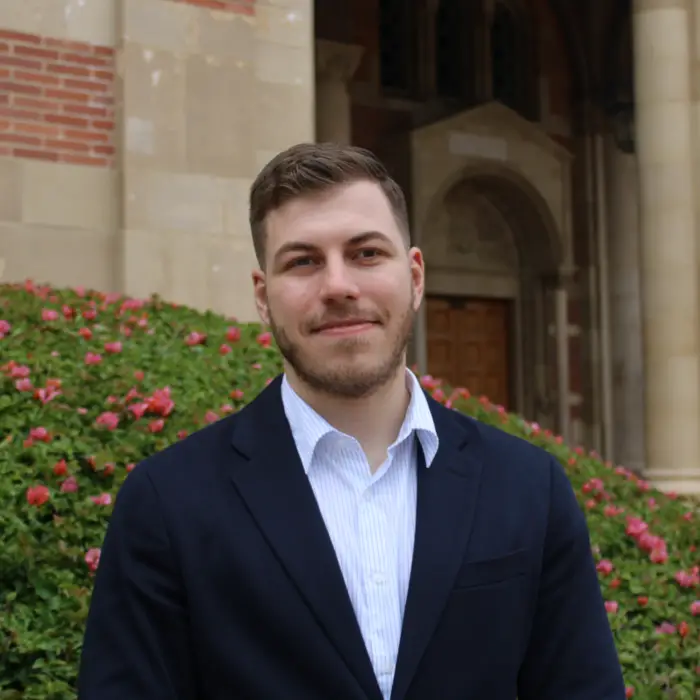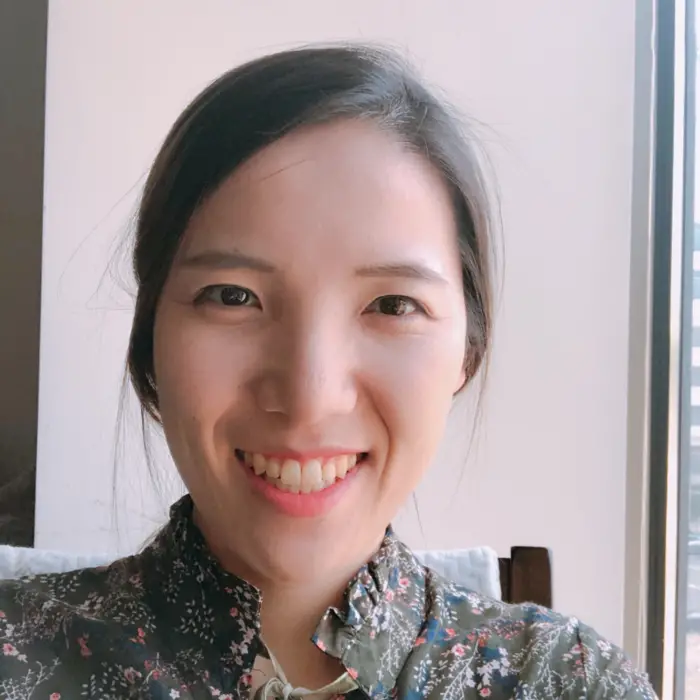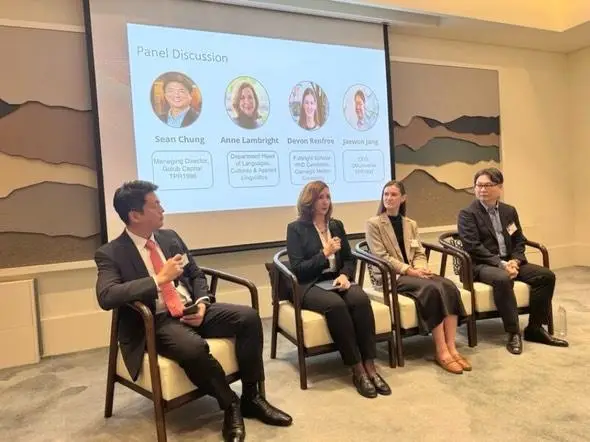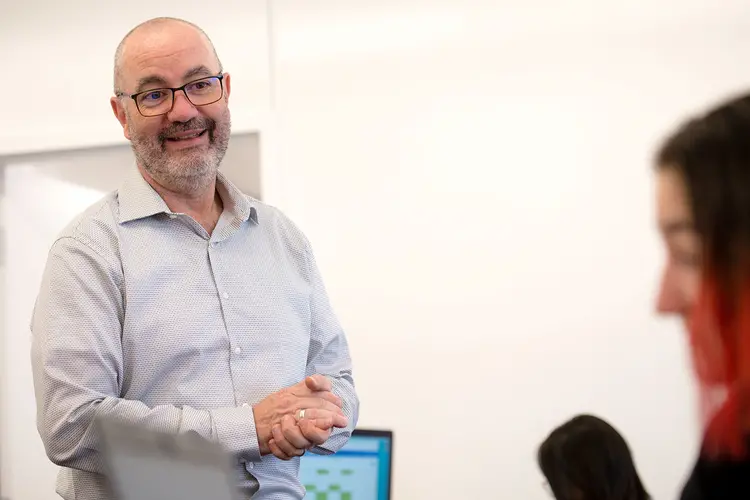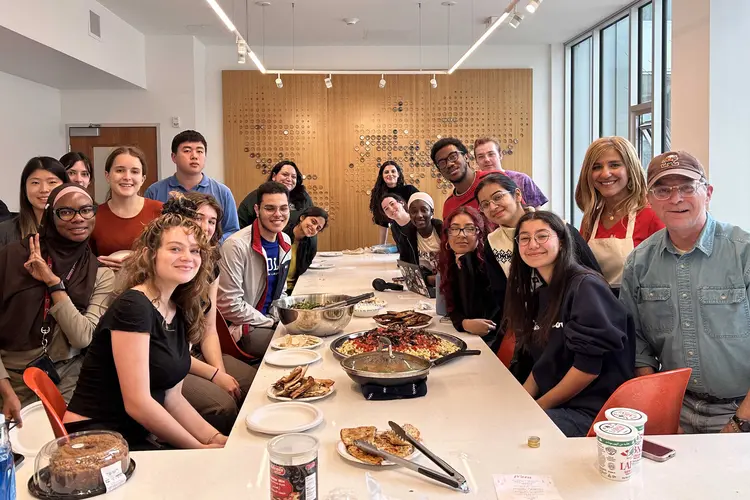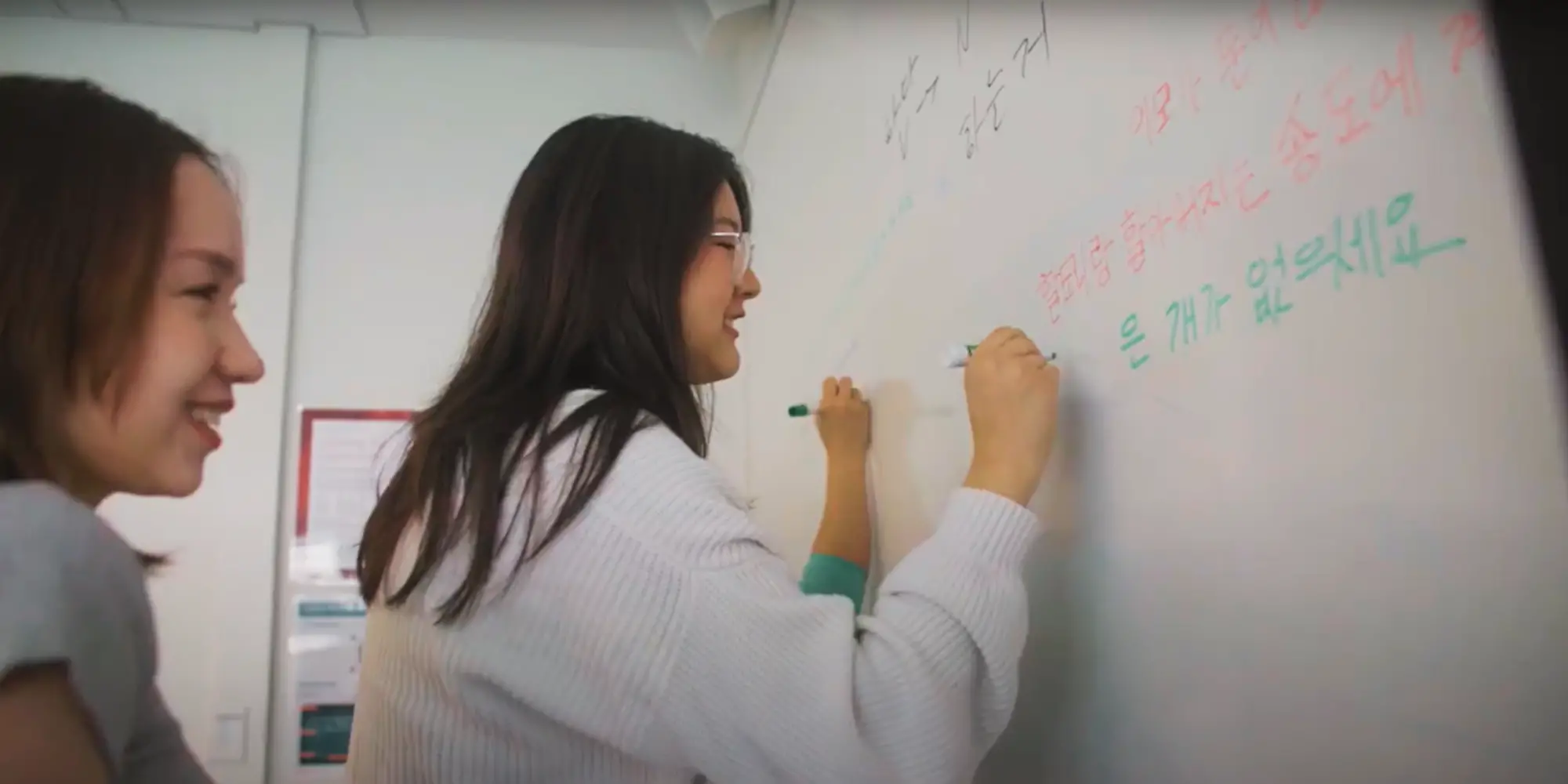
Carnegie Mellon’s Emerging Korean Studies Program Expands
Media Inquiries
Carnegie Mellon University’s new Korean Studies program(opens in new window) is experiencing significant growth, fueled by alumni engagement, growing student interest, and strategic investments in faculty and resources. Housed in the Department of Languages, Cultures & Applied Linguistics(opens in new window) (LCAL), the program reflects CMU’s commitment to preparing students for global careers through language and cultural education.
Launched in fall 2023, the program was created in response to rising student demand and national trends. According to the Modern Language Association(opens in new window), Korean language enrollments grew by 38.8% nationally from 2016 to 2021, making it the fastest-growing and 10th most commonly taught language in the United States. This trend is mirrored at CMU, where initial noncredit Korean conversation classes, centered on TV dramas, quickly evolved into full-credit courses that exceeded enrollment expectations.
The program’s rapid growth has been made possible by a $150,000 donation from a Korean alumnus and a $223,633 grant from The Korea Foundation, which helps support a visiting assistant professor position. These investments have enabled LCAL to offer more robust language and culture courses while building the foundation for a comprehensive Korean Studies program.
The anonymous donor shared their pride in supporting this initiative. “As a Korean, I feel honored to contribute to the effort to make Korean Studies and culture more accessible to our friends in the U.S.,” they said. “Supporting CMU allows me to give back to the community that shaped me during my student years.”
Innovative faculty drive program growth
Two new faculty members are leading the program’s development: Mathieu Berbiguier(opens in new window), visiting assistant professor of Korean Studies, who specializes in Korean popular culture and interdisciplinary studies, and Sanghee Kang(opens in new window), assistant professor of second language acquisition, English as a second language and Korean studies, who also is an expert in technology-mediated language learning.
“I’m excited to build an interdisciplinary bridge between Korean Studies and other fields,” Berbiguier said. “Incorporating digital humanities into the curriculum will enhance students’ digital literacy and diversify our offerings, making the program particularly relevant for students interested in tech-related careers.”
Kang echoed this sentiment. “My vision is to create a research-focused and culturally immersive learning environment that builds students’ language proficiency and cultural understanding,” she said. “Through innovative, research-based teaching methods, I aim to empower our students to become proficient Korean speakers and culturally competent global citizens.”
Alumni engagement fuels future plans
Alumni have played a central role in the program. During a visit to South Korea in October, Department Head and Paul Mellon Distinguished Professor of Hispanic Studies Anne Lambright(opens in new window) met with CMU alumni, including Jaewon Jang, a 1997 graduate of CMU’s Tepper School of Business(opens in new window), CEO of SM Universe, the renowned K-Pop Academy; and Kenny Youn, a 2006 graduate of the Dietrich College of Humanities and Social Sciences, founder of education consulting firms Linkstory and EC LAB. These meetings explored opportunities to expand the program’s reach and create new pathways for students.
“True leadership in the era of AI comes from a deep understanding of diverse human emotions and cultures,” said Jang. “Studying foreign languages and cultures, including Korean, can foster unique leadership. My foreign-language learning experience at CMU broadened my perspectives, and I hope Korean Studies will provide students with similar opportunities to connect across borders.”
Lambright also participated in an alumni event hosted by the CMU Korea Alumni Network. The event featured a panel discussion with Jang and LCAL Ph.D. student Devon Renfroe, led by the network's president Sean Chung, a 1996 Tepper School graduate and managing director at Golub Capital. The panel highlighted ambitious plans for the program, including establishing a major and minor, expanding advanced course offerings, developing study abroad and internship opportunities, and enhancing cultural programming on campus.
Positioning CMU as a leader in Korean Studies
Looking ahead, LCAL plans to build partnerships with organizations and institutions in Korea and the U.S. to strengthen Korean Studies at CMU and provide enriching experiences for students interested in Korean language and culture. These collaborations will complement LCAL’s strong programs in Chinese Studies(opens in new window) and Japanese Studies(opens in new window), to establish CMU and Pittsburgh as a leading hub for East Asian Studies in the United States.
“Our goal is not just to ride the Korean Wave but to lead it,” said Lambright. “By building a vibrant and inclusive community for Korean Studies, we are equipping our students with valuable skills and cultural insights that will serve them in diverse global careers.”
